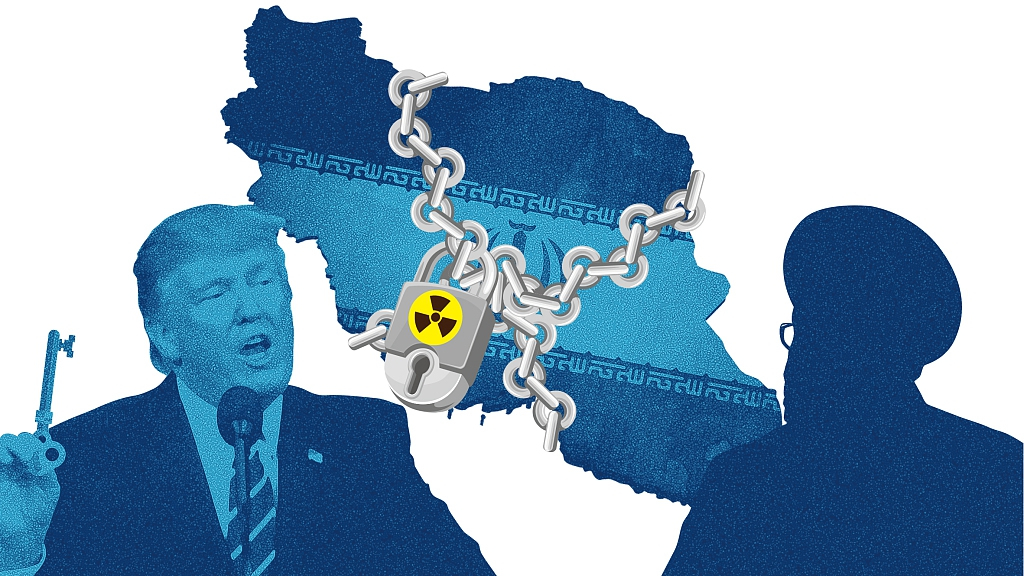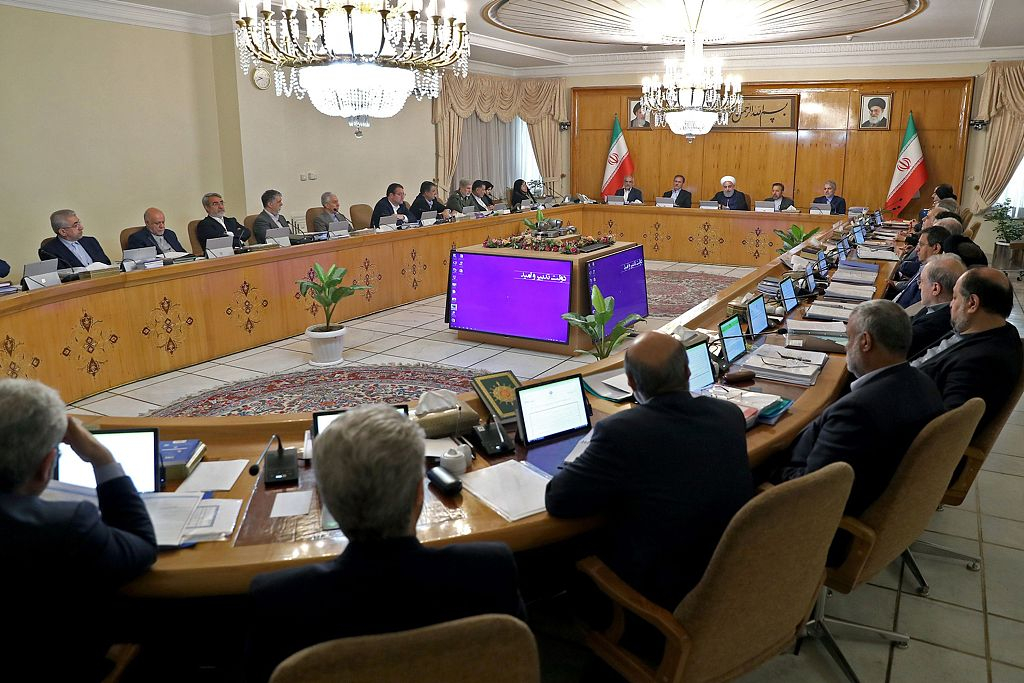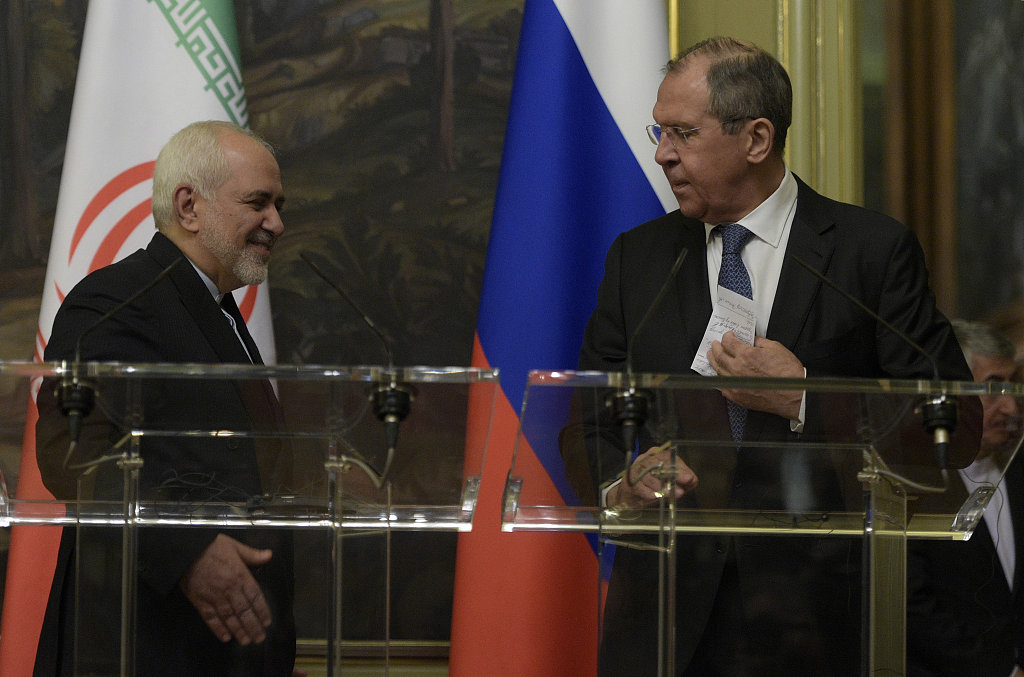
Opinion
20:20, 18-May-2019
Russia isn't a "firefighting rescue crew" on the Iranian nuclear deal
Andrew Korybko

Editor's note: Andrew Korybko is a Moscow-based American political analyst. The article reflects the author's opinion, and not necessarily the views of CGTN.
Russian President Putin told the media during a press conference on Wednesday in response to a question about his country's efforts to save the Iranian nuclear deal that "Russia is not a firefighting rescue crew. We cannot save things that are not fully under our control. We have played our part, and we are ready to continue to play the same positive role, but it does not depend solely on us. It depends on all our partners and all the parties, including the United States, the European countries and Iran."
His wise words display maturity to accept his country's limitations and not dangerously fall for the delusions of geopolitical grandeur that have been the beginning of the end for many others. Russia isn't a "firefighting rescue crew," nor should it or any other country be lest they risk making the same mistakes that the U.S. has made all across the world, yet some people have mistakenly come under the impression that Moscow is supposed to fulfill this role because of its decisive actions in Ukraine and Syria.

A handout picture provided by the Iranian presidency on May 8, 2019, shows Iranian President Hassan Rouhani chairing a meeting with his cabinet in Tehran. /VCG Photo
A handout picture provided by the Iranian presidency on May 8, 2019, shows Iranian President Hassan Rouhani chairing a meeting with his cabinet in Tehran. /VCG Photo
Russia's actions in those two countries were driven by its pressing national security concerns. In Ukraine, a foreign-backed coup dangerously led to the rise of an extreme far-right government that flirted with Nazi-era "nationalism," which scared the majority-Russian people of Crimea into holding a democratic referendum to reunite with their homeland for protection. As for Syria, Russian and Central Asian nationals went there to wage militant jihad with ISIS, so Moscow felt compelled to deal with them there before they returned militarily.
The United States, however, had no such national security concerns when it invaded Afghanistan and Iraq, nor when it destroyed Libya, to say nothing of the prior campaign of pure aggression that was waged against the former Yugoslavia. Nevertheless, American officials and media deceptively misportrayed their country's leading role in these conventional conflicts as a firefighting response to some crisis, ignoring the fact that the United States' actions actually set each region aflame, to begin with. Those disastrous consequences still reverberate to this day.
It's precisely because of the chaos that the U.S. caused across the world that many people became desperate for a country to rise up and restore order, mistakenly believing that Russia had appointed itself this role after they misinterpreted its decisive actions in Ukraine and Syria. As tensions become more acute in the Persian Gulf, some people think that they're watching a slow-motion disaster in the making and are fearful that the U.S. might be planning to launch an Iraq War-style "shock and awe" campaign against Iran despite its denials.

Iranian Foreign Minister Mohammad Javad Zarif (left) and Russian Foreign Minister Sergei Lavrov (right) during the ceremony of signing joint documents after the talks at the Reception House of Russian Foreign Ministry. /VCG Photo
Iranian Foreign Minister Mohammad Javad Zarif (left) and Russian Foreign Minister Sergei Lavrov (right) during the ceremony of signing joint documents after the talks at the Reception House of Russian Foreign Ministry. /VCG Photo
Seeing as how Russia is one of the signatories of the Iranian nuclear deal, there's a false expectation among some that it will act just as decisively as it did in Ukraine and Syria in order to confront the U.S., but the fact of the matter is that Moscow's actions in both of those countries were driven by national security considerations and not any desire to challenge Washington or act as a "firefighting rescue crew" to restore order to the chaos that America caused. President Putin put that false notion to rest during Wednesday's press conference.
Having said that, Russia and other responsible members of the international community have indeed done their utmost to save the Iranian nuclear deal, but a single country or a collection thereof cannot force the U.S. and Iran to negotiate like what's needed if those two aren't willing to do so on equal terms. This task is made all the more challenging by the EU's tacit siding with its American ally on this issue, which seriously complicates constructive efforts to promote dialogue.
Under these circumstances, the most realistic role that one can expect Russia to play is to support host informal or formal talks upon request and possibly help mediate between all parties. It will also politically support Iran at the UN and stand up for the principles of international law that the U.S. is violating through its unilateral withdrawal from the Iranian nuclear deal, but no one should get their hopes up that Russia will act as a "firefighting rescue crew" if the situation deteriorates.
(If you want to contribute and have specific expertise, please contact us at opinions@cgtn.com.)

SITEMAP
Copyright © 2018 CGTN. Beijing ICP prepared NO.16065310-3
Copyright © 2018 CGTN. Beijing ICP prepared NO.16065310-3